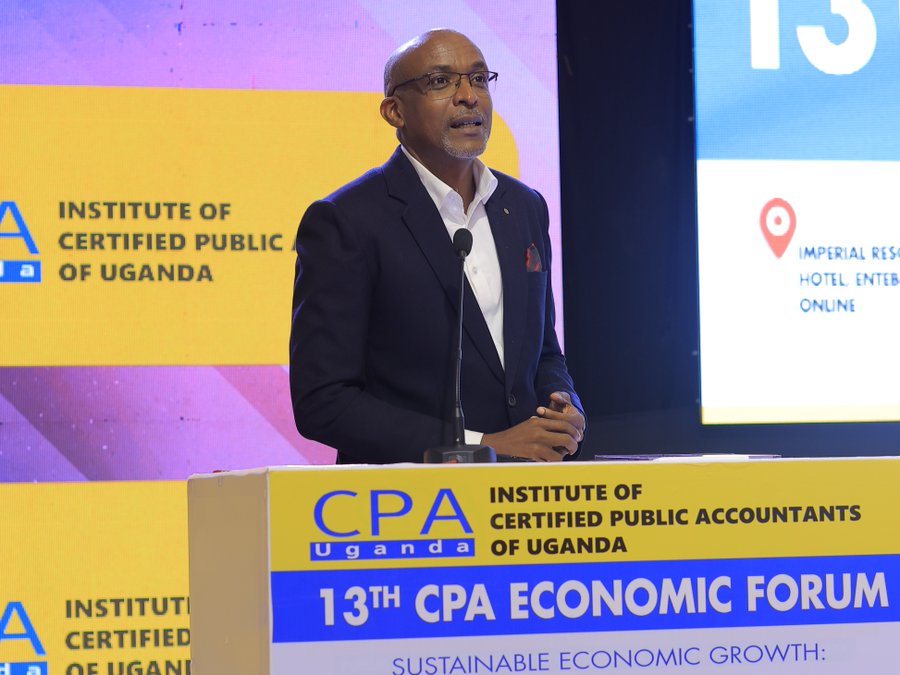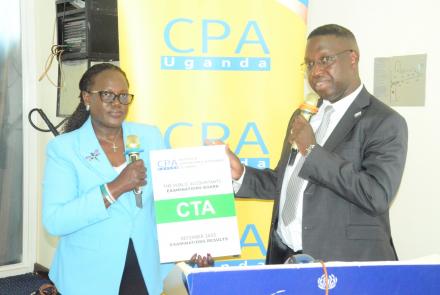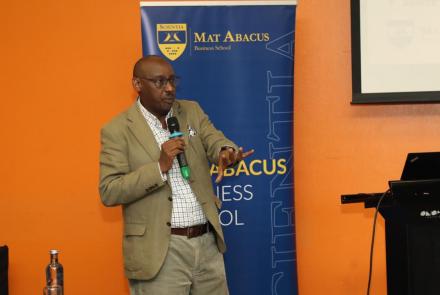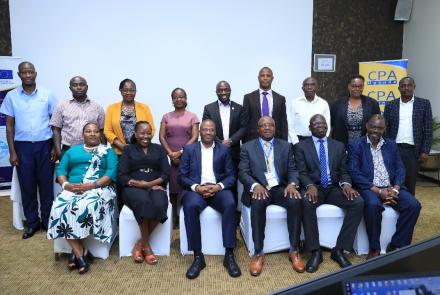By Joan Abaasa
Communications Officer, ICPAU
Accountants have been urged to leverage ICT to drive sustainable economic growth. This was during the 13th CPA Economic Forum on 10 July 2025, at the Imperial Resort Beach Hotel. The forum is being held under the theme, “Sustainable Economic Growth: Transforming Today, Thriving Tomorrow.”
Michael Niyitegeka, Executive Director of Refactory urged stakeholders to look beyond digital infrastructure and focus on how technology is being applied to create value.
“We’ve built the digital superhighway, but what are we transporting on it?” he asked, highlighting the disconnect between Uganda’s ICT investments and actual digital transformation outcomes.
He noted that despite considerable investments in cloud servers and digital platforms, Uganda still struggles with underutilisation due to poor alignment between innovation and business needs. Citing a decade-old malaria diagnostic tool stuck in the laboratory, Niyitegeka stressed the need for stronger collaboration between researchers, innovators, and business leaders to provide local solutions.
Using the example of TikTok, he illustrated the economic cost of digital underutilisation. With approximately five million active users in Uganda consuming between 100 to 300MB daily, the country may be spending UGX 12.5 to UGX 37 billion each day on the platform, with an estimated UGX 10 billion in lost productivity.
“What are we producing?” What are we learning?” Niyitegeka questioned.
While acknowledging the value of digital platforms, Niyitegeka emphasised the need to shift from consumption to value creation. “We must use these platforms to build businesses, share knowledge, and generate revenue,” he said.
He proposed a four-pillar framework for digital transformation: people, processes, technology, and skills. On people, he called for increased digital competence and confidence. On processes, he applauded institutions like National Identification and Registration Authority (NIRA) for streamlining services but stressed that technology should eliminate inefficiencies, and not replicate services.
Regarding technology, he stated that Uganda already has a solid ICT foundation but needs wider adoption and integration. On skills, he advocated for data literacy across all professions, not just in IT, calling on accountants to use their positions to influence ICT adoption and data-driven decision-making.
Complementing Niyitegeka’s insights, Dr. Hatwib Mugasa, Executive Director of the National Information Technology Authority Uganda (NITA-U), aligned his presentation with the objectives of Uganda’s fourth National Development Plan (NDP IV). He emphasised that ICT is central to increasing productivity and value addition across key sectors such as agriculture, industry, oil and gas, tourism, and financial services.
Mugasa outlined NDP IV's strategic focus areas: expanding ICT infrastructure, extending broadband coverage countrywide, connecting government service units to broadband, and automating and integrating public services. He noted that deploying shared digital services would significantly enhance service delivery and efficiency across the public sector.
He also highlighted the transformative role of ICT in agriculture, where digital platforms are improving extension services and market access, and in tourism, where digital services are being enhanced to attract more visitors. The education sector is also benefiting from improved access to digital tools and content, while ICT is helping unlock e-commerce and streamline production processes.
Mugasa concluded by highlighting that ICT is not merely a sector but a powerful enabler of inclusive and resilient economic development.
The CPA Economic Forum is ICPAU’s flagship platform for addressing critical economic issues that impact the accountancy profession and the wider business landscape. Over the years, ICPAU has consistently provided policy recommendations and tax proposals to the government through the Ministry of Finance, Planning and Economic Development, contributing to meaningful national reforms.
The 13th CPA Economic Forum is organised in partnership with Bank of Uganda, Uganda National Oil Company (UNOC), National Agricultural Research Organisation (NARO), Uganda Printing and Publishing Corporation (UPPC), Electoral Commission, Centenary Bank, Uganda Electricity Generation Company Limited (UEGCL), National Social Security Fund (NSSF), Stanbic Bank, PKF Uganda, Prudential Assurance Uganda Limited and MTN Uganda.





